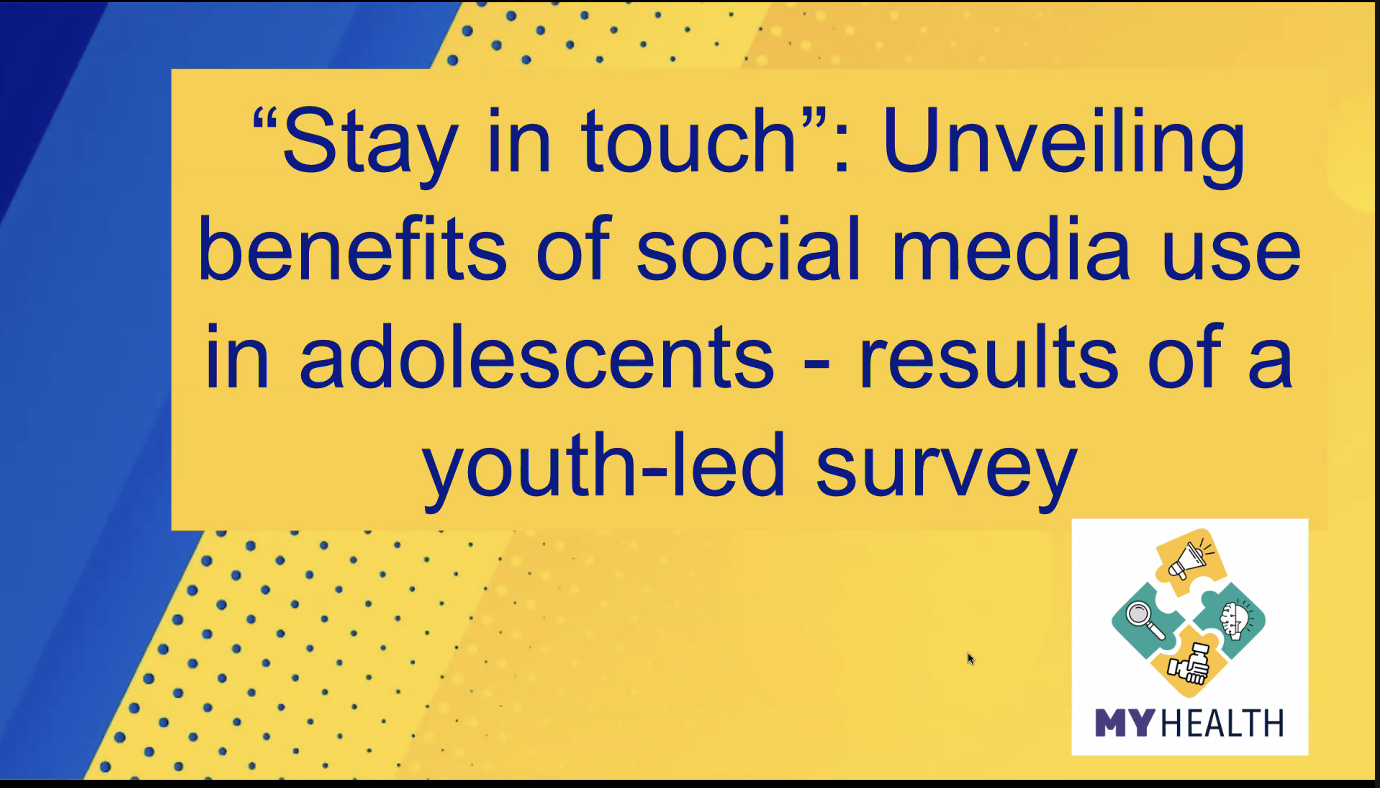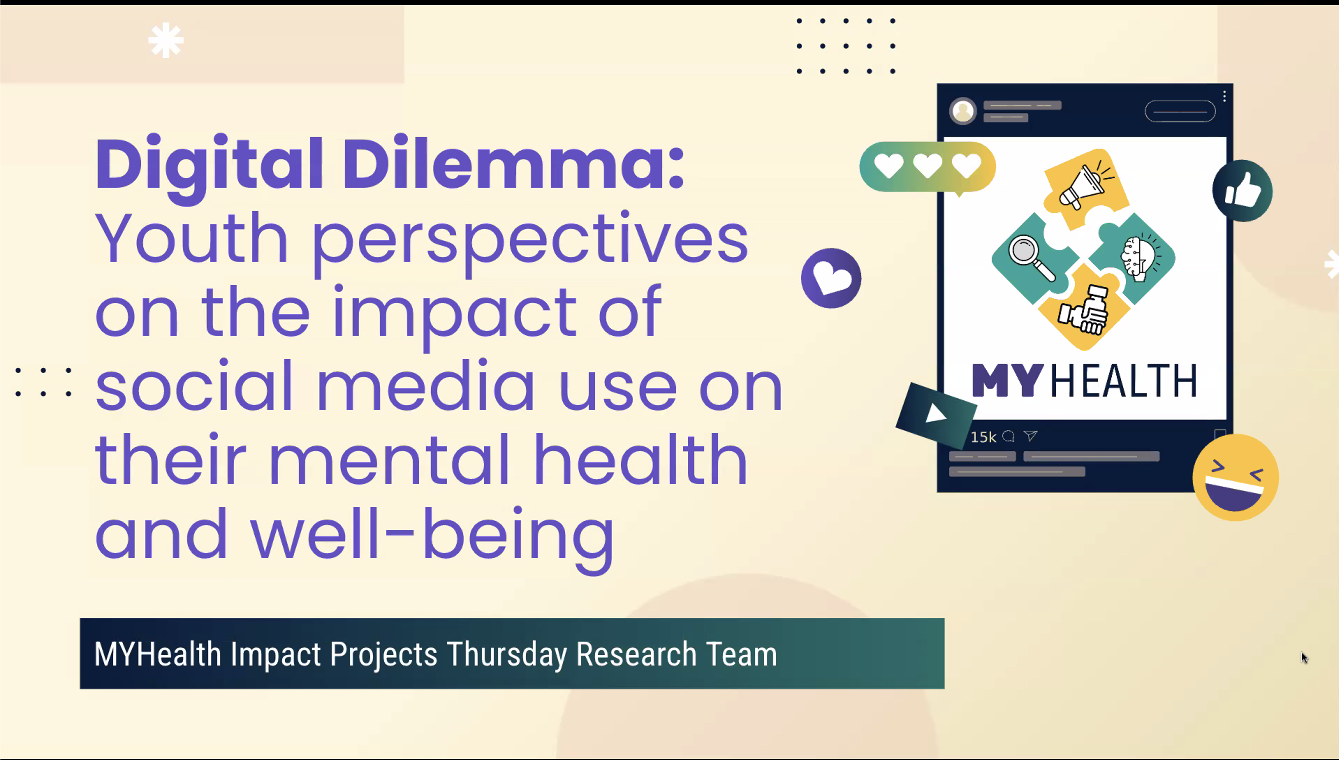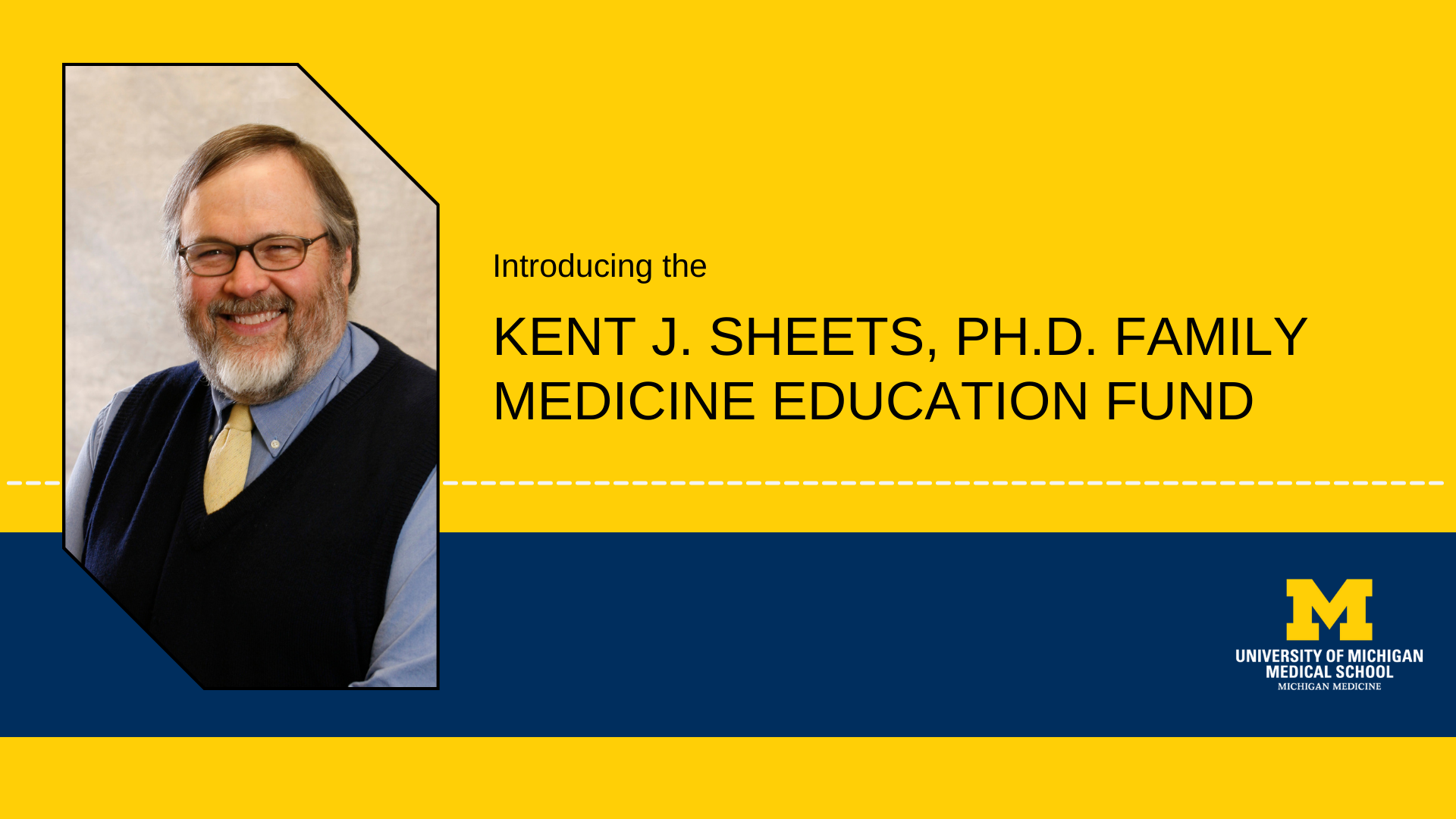The MYHealth program is shaping the future of some of the youngest researchers-in-training to do work in the health sciences. MYHealth is housed within the Department of Family Medicine and has been funded through a Science Education Partnership Award from the National Institute of General Medical Sciences since 2021.
Recently, the program’s second full cohort of high school students – 21 total -- presented their final Impact Projects involving social media research. Eleven students attended the online event to discuss their findings. These projects were the culmination of a full academic year of work, which included weeknight meetings and extra weekend work to help them learn to conduct research.
The 21 students divided into two teams, utilizing two different data sets from Family Medicine’s MyVoice nationwide text survey. The data included feedback from young people ages 14-24 across the United States who were surveyed about how they use social media and the health benefits and disadvantages of engaging in its various channels.
Assistant Professor Melissa DeJonckeere, Ph.D., leader of the MYHealth program, said the high school students were excited to have access to their peers’ responses in learning how to analyze data.
“Using MyVoice data from adolescents and young adults creates a unique opportunity for the MYHealth students to think about issues that directly affect them as youth,” she said. “The research feels relatable and engaging because they are analyzing data from other young people that is collected through texts.
“We hear comments from MYHealth students about how youth voices are important in adolescent research,” she added. “They want to be included in research about them and in research in general.”

The team that discussed the benefits of social media titled their project, ‘“Stay in touch”: Unveiling benefits of social media use in adolescents – results of a youth-led survey’. The team that discussed the not-so-positive effects of social media research titled their presentation, “Digital Dilemma: Youth perspectives on the impact of social media use on their mental health and well-being.”
MYHealth students, who came from school districts across the metro Detroit area, examined approximately 800 responses from MyVoice survey participants who answered questions about social media including how they typically use it; what benefits and disadvantages they derive from social media; how social media affects their perceptions of the world; how it affects their in-person relationships with friends; and to share a time when social media made them feel good -- or bad -- about themselves.
During the presentations, MYHealth students spoke about why social media is worthy of study; how they examined the data; how they identified themes; results of their analysis; and potential next steps in the research process.

“We often remind them that they are using the same tools and methods as university faculty,” DeJonckheere said. “We haven’t changed the tools. I think that’s an empowering piece of the MYHealth program. The work they are doing can feel really hard, but it can feel really hard to full-time researchers, too. It takes time and practice to build research skills and they are getting a head start.”
DeJonckheere said that MYHealth is unique in that participating students lead the entire project, from idea generation to final presentations. It’s also an all-hands-on-deck endeavor, with University of Michigan undergraduate students and recent graduates helping to create fun and engaging curriculum for the high schoolers. This year, there were 10 undergraduate research assistants on the team, with approximately eight in attendance at this year’s presentation.
U-M faculty members from across the university also interact with the students to talk about their respective jobs as researchers. Additionally, faculty from the University of Cincinnati College of Medicine, Cincinnati Children’s Hospital Medical Center, and the University of Cincinnati School of Education are also collaborators on the MYHealth project.
The MYHealth presenting students commented that they gained a new appreciation for the variety of opinions that their peers held about social media. They also enjoyed the team work that occurred among themselves and learning the research process.
“What was most exciting to me were all the themes that we found” from the data, said participant Alexandria Rush, who was part of the team that studied the benefits of social media. “It was kind of challenging to figure out what themes to include. The coding was probably most challenging.
“We had debates about the themes to include. It was really nice to work in a large, diverse team.”
Divyashree Dwarakanath, who was part of the team that discussed the negative aspects of social media, said having access to study data enhanced her appreciation for the nuances of social media perceptions among her peers.
“I feel like looking at the research itself and seeing the amount of different answers, there were so many different sides to it, and I feel like it helped me to realize how different people’s opinions are on a lot of issues,” she said. “I can appreciate their sides more even if I’m not agreeing with what they’re saying.”
The MYHealth project also includes a component for interested students to return as peer leaders the following year. MYHealth Peer Leader Lujain Almawri said project participation helped her academically.
“I really enjoyed the community that it provided and all the resources,” she said. “The things that I learned about research I found … really helped me in my AP research class. Considering the fact that I want to continue to do research in college, I felt like it was a good way to learn about research.”
ALSO READ: Research papers about the MYHealth program, published by members of the coordinating team:
“Anyone Can Be a Researcher”: Findings from the MYHealth Virtual Summer Research Training Program for High School Students from Historically Marginalized Groups,” published in the Journal of STEM Research, September 2023.
Increasing representation and diversity in health research: A protocol of the MYHealth research training program for high school students, published in PLOS One, September 2023.
For media inquiries, please contact Science Communicator Elizabeth Katz at [email protected].


